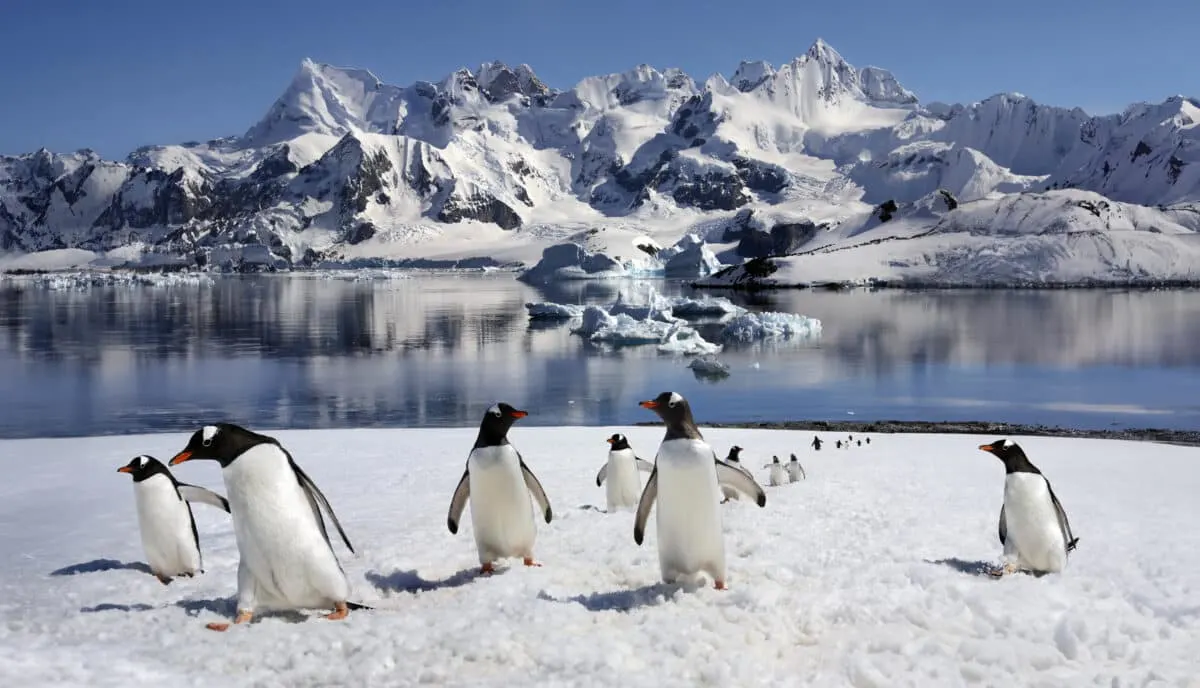Antarctica, the southernmost continent, stands as a frigid and inhospitable wilderness, yet it is home to a remarkable array of wildlife that has adapted to extreme conditions. The year-round challenges these animals face include piercing cold, relentless winds, and months of darkness. From penguins to seals, each species has evolved unique strategies for survival in this harsh environment.

One of the most iconic Antarctic inhabitants is the Emperor Penguin (Aptenodytes forsteri). These majestic birds have evolved exceptional adaptations to endure the brutal conditions of the Antarctic winter. As the temperature drops to an astonishing -40 degrees Celsius (-40 degrees Fahrenheit), Emperor Penguins huddle together in tightly packed groups, forming a living insulation against the biting cold. This communal warmth is crucial for their survival during the months of continuous darkness, as they endure brutal storms and wind speeds that can reach up to 200 miles per hour.
Another resilient creature found in Antarctica is the Weddell Seal (Leptonychotes weddellii). These seals spend much of their lives in and around the sea ice, where they carve breathing holes with their teeth. Unlike their counterparts in warmer regions, Weddell Seals possess a unique ability to dive for extended periods, reaching depths of over 600 meters, in search of their prey—mostly fish and squid. Their thick layers of blubber provide insulation against the sub-zero temperatures of the surrounding water, ensuring their survival in one of the most extreme marine environments on the planet.

While some Antarctic species have adapted to life on and around the ice, others navigate the icy waters of the Southern Ocean. The Antarctic Toothfish (Dissostichus mawsoni), for instance, is a crucial part of the Antarctic food web. These large fish inhabit the depths of the Southern Ocean and have evolved to thrive in freezing temperatures. However, their existence is now threatened due to overfishing, putting the delicate balance of the Antarctic marine ecosystem at risk. Conservation efforts are essential to prevent the Antarctic Toothfish from sliding toward extinction.
The harsh conditions of Antarctica also extend to its skies, where seabirds like the South Polar Skua (Stercorarius maccormicki) carve out a niche. These scavengers feed on the eggs and chicks of other seabirds, capitalizing on the short Antarctic summer when breeding colonies come to life. Their opportunistic nature allows them to exploit the seasonal abundance of food, ensuring their survival in this desolate environment.

While some Antarctic species face threats due to climate change and human activities, others continue to thrive despite the extreme conditions. The Antarctic ecosystem is delicate, and disruptions can have cascading effects on its inhabitants. As global temperatures rise, the ice that many species depend on for breeding and hunting diminishes, putting additional stress on already vulnerable populations.
The survival of animals in Antarctica is a testament to the resilience of life in the face of extreme conditions. From Emperor Penguins enduring the harsh winter winds to Weddell Seals mastering the art of deep-sea diving, each species has adapted in its own unique way. However, the delicate balance of this pristine ecosystem is under threat, and concerted efforts are required to ensure the continued survival of these remarkable creatures. Conservation measures, responsible fishing practices, and global efforts to address climate change are crucial to safeguard the future of Antarctica’s awe-inspiring wildlife.

Join our Forum for free today!

- Second American Killed by Elephant in Zambia This Year - July 22, 2024
- Elderly Man Kills Grizzly Bear in Montana - July 22, 2024
- Missing Cat Found Weeks Later, 40 Miles Away - July 21, 2024

